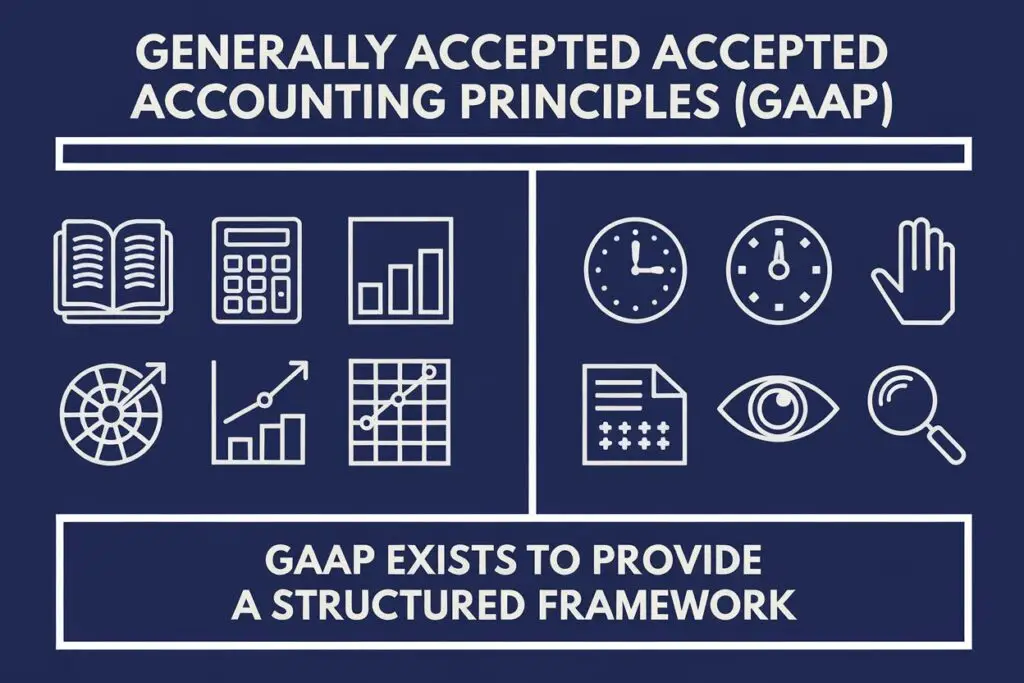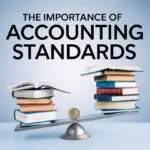The Generally Accepted Accounting Principles: (GAAP)
When it comes to understanding finance and accounting, few concepts are as crucial as the Generally Accepted Accounting Principles, or GAAP. These guidelines serve as the foundation for financial reporting in the United States and help ensure that financial statements are consistent, comparable, and transparent. In this article, we’ll dive into what GAAP encompasses, its importance in the business world, and we’ll even toss in some frequently asked questions!
What is the (GAAP)?
In the world of finance and accounting, clarity and consistency are crucial for stakeholders, investors, and companies alike. Whether you’re a seasoned accountant or a business owner just starting, understanding the Generally Accepted Accounting Principles (GAAP).
Understanding (GAAP)
GAAP is a set of rules and standards for financial reporting in the United States. Established by the Financial Accounting Standards Board (FASB), these guidelines ensure the transparency and comprehensibility of financial statements, making it easier for stakeholders to assess a company’s financial health. While individual companies may tailor their reporting to suit their specific needs, adherence to GAAP ensures a level of uniformity that facilitates comparison across organizations.
Importance of (GAAP)
Here are some reasons why GAAP is essential for businesses:
- Consistency: GAAP provides a consistent framework for financial reporting. This standardization allows for better comparison between companies within the same industry and helps investors make informed decisions.
- Transparency: By adhering to GAAP, companies are required to maintain transparency in their financial reporting. This openness builds investor trust and ensures stakeholders have access to accurate and complete information.
- Regulatory Compliance: Publicly-traded companies are required by law to file their financial reports in accordance with GAAP. Compliance with these principles is critical to avoid legal repercussions and maintain a company’s reputation.
- Facilitates Audit Processes: Following GAAP guidelines makes the auditing process more straightforward and efficient. Auditors can easily verify a company’s financial statements when they follow a standard set of principles.
Key Components of GAAP
- Principles: GAAP exists to provide a structured framework. Here are a few key principles:
- Consistency: Companies should consistently apply accounting methods.
- Relevance: Financial reporting should be relevant to the users.
- Reliability: Information presented should be verifiable and faithful.
- Comparability: Financial information should be comparable across different entities.
- Assumptions: GAAP operates under several important assumptions:
- Accrual Basis: Revenue should be reported when earned, not necessarily when cash is received.
- Going Concern: Businesses are assumed to continue operations indefinitely unless stated otherwise.
- Constraints: GAAP accounting must also take into account certain constraints, such as:
- Materiality: Only information that could influence the decision of a reasonable investor must be disclosed.
- Conservatism: When in doubt, report lower profits or higher expenses.
Importance of GAAP
The importance of GAAP cannot be understated.
- Enhances Credibility: Adhering to GAAP increases the integrity of financial reports. Investors and stakeholders trust and rely on financial statements that comply with these principles.
- Ensures Transparency: By providing a universal standard for all companies, GAAP promotes transparency in financial reporting.
- Facilitates Comparability: Different companies can be compared easily when they all follow the same standards.
- Regulatory Compliance: Companies, especially those publicly traded, must comply with GAAP to meet regulatory requirements.
Table: Key Principles of GAAP
| Principle | Description |
|---|---|
| Consistency | Methods of accounting must remain unchanged over time. |
| Relevance | All information that could influence decisions must be reported. |
| Reliability | Information should be verifiable, factual, and unbiased. |
| Comparability | Financial statements should be comparable across entities. |
“Accounting is the language of business.” – Warren Buffett
This famous quote from Warren Buffett captures the essence of accounting standards like GAAP. Understanding the language of accounting opens the doors to interpreting financial scenarios effectively.
FAQs About GAAP
Companies that do not adhere to GAAP may face scrutiny from investors, creditors, and regulators. In some cases, they could face legal repercussions or loss of credibility.
No, GAAP (Generally Accepted Accounting Principles) is used primarily in the United States, while IFRS (International Financial Reporting Standards) is used globally. Though they share some similarities, there are key differences in their requirements and approaches.
Even if you’re a small business, adhering to GAAP can enhance your credibility and help you keep sound financial practices. This can be critically important when you seek loans or investment.
GAAP standards are updated periodically to reflect new economic realities and to improve clarity. It’s essential for accountants and organizations to stay updated on any changes.
Conclusion
Understanding the Generally Accepted Accounting Principles is crucial for anyone involved in business or finance. GAAP not only provides a clear framework for financial reporting but also enhances trust and transparency within the business community. Whether you’re running a small company or analyzing a large corporation, familiarizing yourself with GAAP will undoubtedly provide you with a solid foundation in the financial realm. Remember, as you navigate this world, you don’t need to be an accountant to appreciate the importance of good accounting practices.



